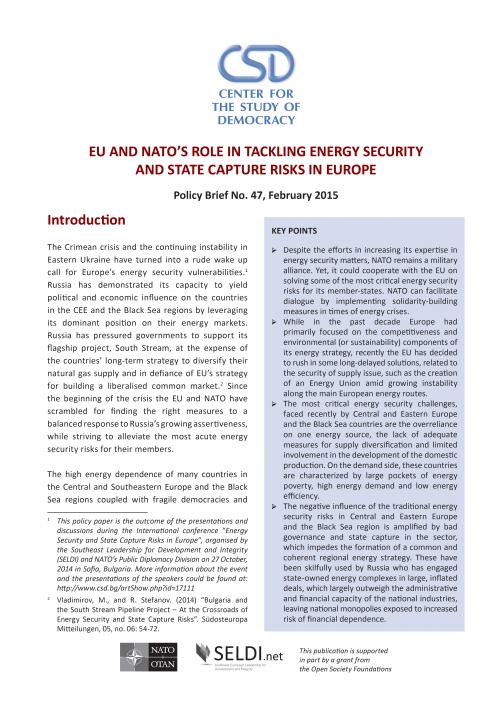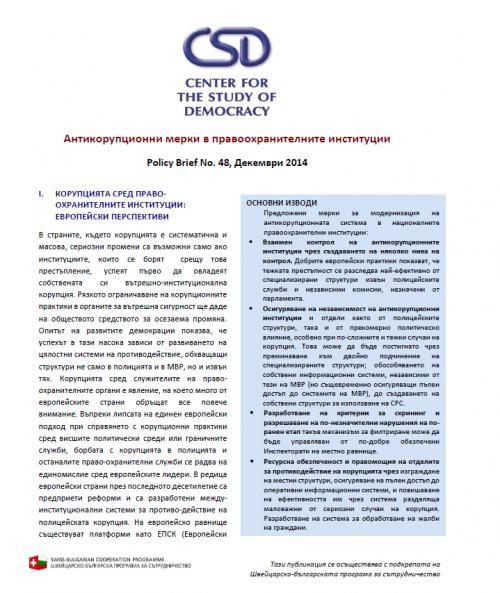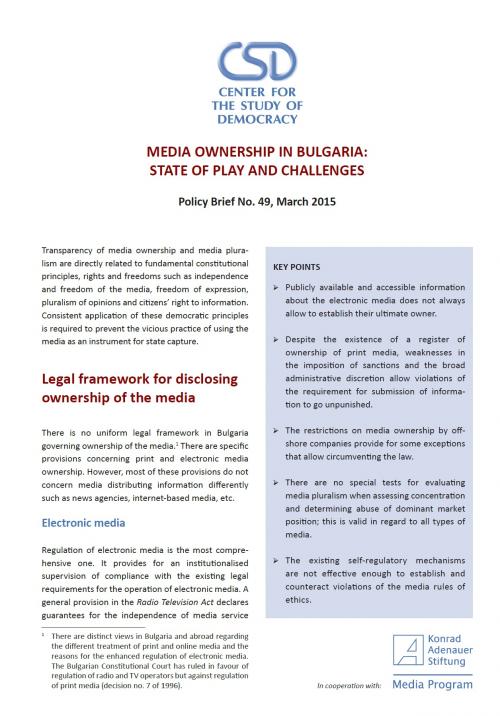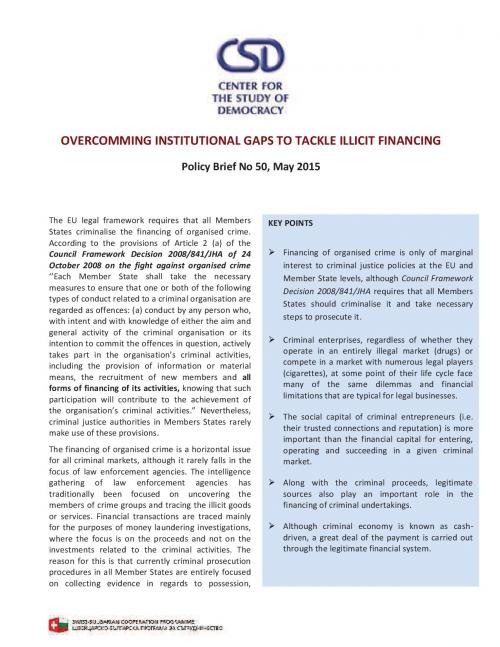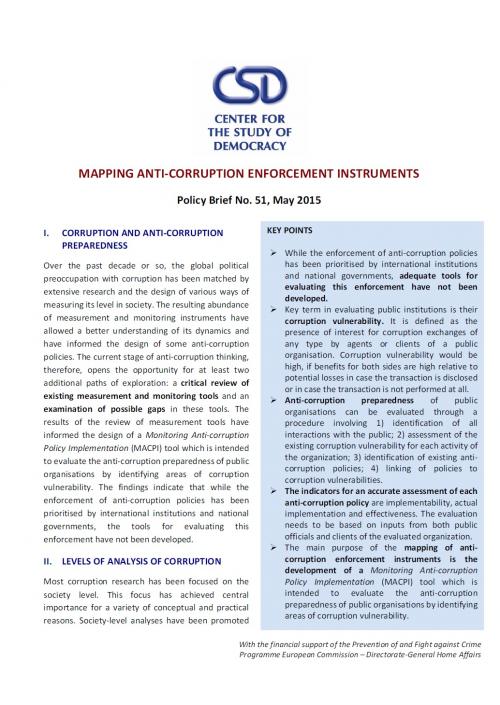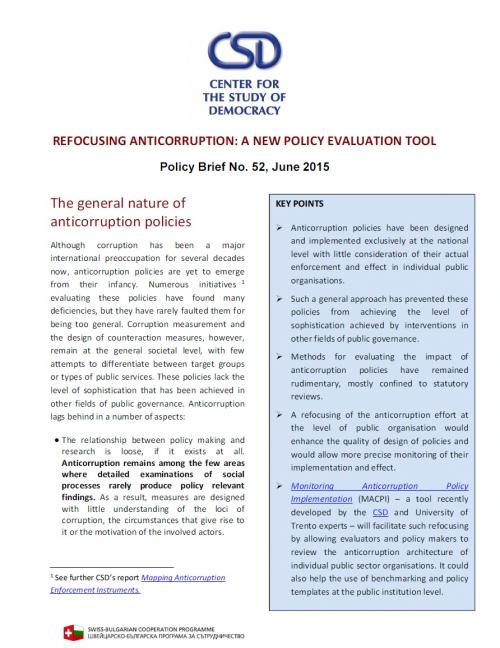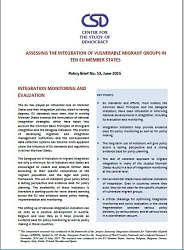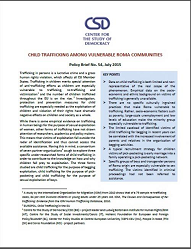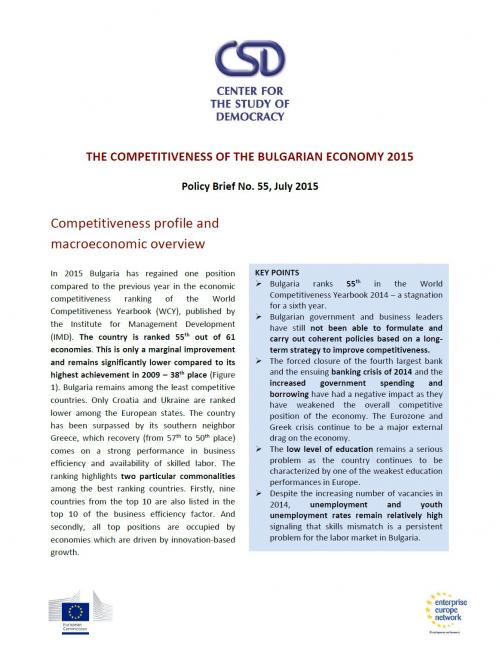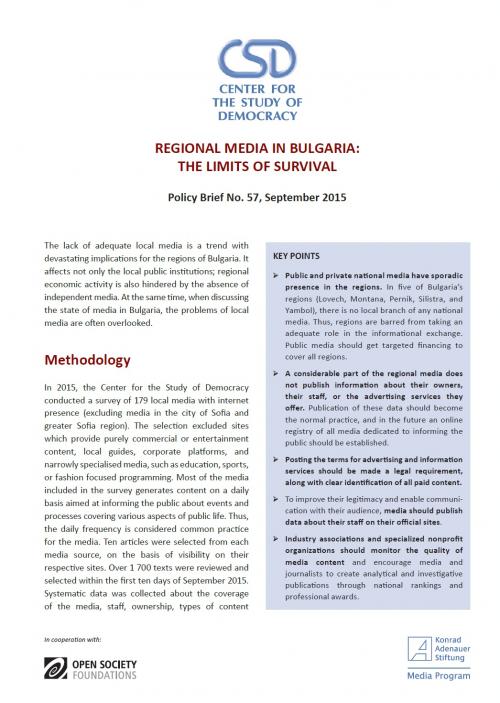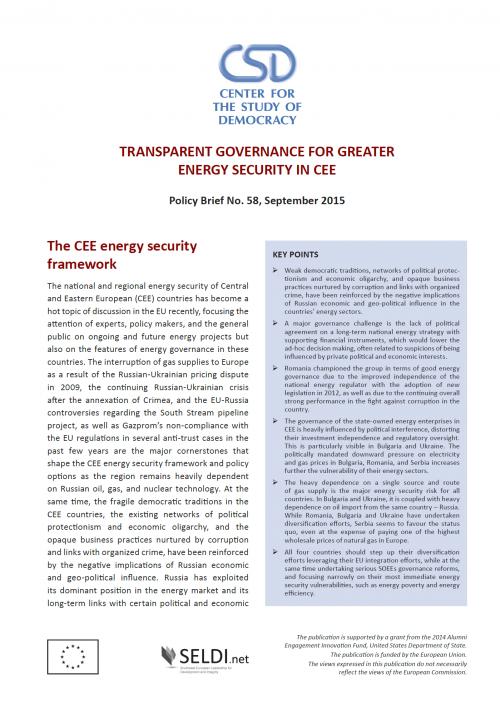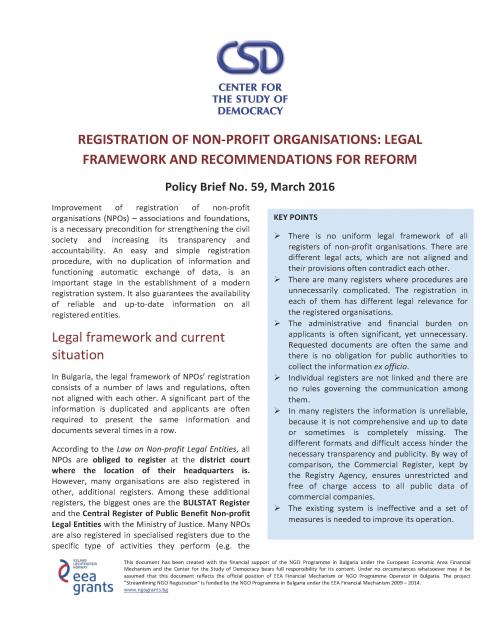
CSD Policy Brief No. 31: Antimafia: The Italian Experience in Fighting Organised Crime
CSD Policy Brief No. 31: Antimafia: The Italian Experience in Fighting Organised Crime
Keywords: organized crime;
KEY POINTS The Italian approach to countering organized crime encompasses a number of complementing measures, which are tailored to the specific threats posed by the mafia. ››› Specialised legislation for facilitating and accelerating of pre-trial and judicial proceedings against mafia leaders and members ››› Harsher penalties and special penitentiary regimes against high level members of organised crime groups, which pose a serious threat to society. ››› Preventive confiscation allowing for expropriating mafia assets in favour of the society and the state. ››› Holistic antimafia policies have been pursued in the infiltrated by the organised crime municipalities and provinces. These policies include dissolving of the mafia controlled local authorities and implementing programs for improving security and economic development in Southern Italy.
More...







